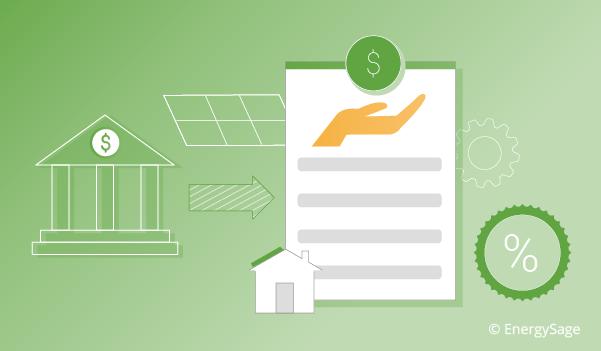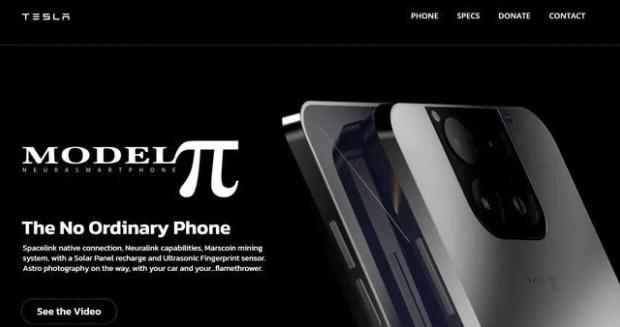Solar loans can help finance solar panel installation. Find out how to get a solar loan and if it’s the right move for you. (Shutterstock)
Solar panels can potentially save homeowners between $10,000 and $30,000 on electricity over the life of their solar system,according to solar marketplace EnergySage. And potential for tax credits can increase the year-over-year benefits of solar energy in the home even more.
But installation isn’t cheap — about $20,000 on average, EnergySage reports. A solar loan could help cover the cost, so if you’re considering going solar, it’s important to learn how solar financing works, whether it’s worth it to get solar panels, and the tax benefits of a solar panel system.
Visit Credible to learn more about personal loans for solar panels andsee your prequalified rates.
What’s a solar loan?
Solar loans are similar to home improvement loans. These unsecured personal loans help you fund the installation of solar panels for your home, and they don’t require collateral. Instead of paying the full expense upfront, you spread your payments out in installments.
If you’re approved for a personal loan, you’ll receive a lump sum of money (typically via a direct deposit). One of the best features of personal loans is you can get your money quickly — some lenders even offer same-day funding. You’ll make monthly payments with a fixed interest rate, and you’ll generally have a repayment term between two and seven years.
You can apply for a solar loan from a personal loan lender or directly through a solar panel company that offers in-house financing.
Is it worth it to get solar panels?
Solar panel installation is expensive. The average five-kilowatt residential system can cost between $15,000 and $25,000 before tax incentives and credits,according to the Center for Sustainable Energy. And it takes between six and nine years on average to recoup those costs.

To determine if the cost of solar panel installation is worth it, ask yourself a few questions:
After considering those factors, compare quotes from a few different solar companies. Then, get prequalified for a personal loan and compare personal loan rates and terms to the financing options offered by the solar companies. Finally, compare the total costs of financing the solar installation to the estimated savings the solar panels will offer during the life of the loan.
You can useCredible’s personal loan calculatorto see how much you’ll pay over the life of a solar loan from a personal loan lender.
Solar panel tax benefits
Currently, you can claim a federal residential solar energy tax credit of 26% of the cost of the system. If you install a system in 2023, the credit goes down to 22%. This solar tax credit is set to expire in 2024, unless Congress renews it. Visit theOffice of Energy Efficiency & Renewable Energy’s websitefor more information on this tax credit.
Your state may also offer incentives for installing solar panels. Check out theDatabase of State Incentives for Renewables & Efficiencyto find out what tax benefits you might be able to take advantage of.
How to get a personal loan for solar panels
Follow these steps to get apersonal loan for solar panels:
Other solar loan financing options
You may also want to consider the following options for financing your solar panel system:
Solar loan FAQs
Here are the answers to some commonly asked questions about solar loans.
The most beneficial decision is the one which fits your financial situation best. Buying solar panels can be expensive, but you may enjoy long-term savings. With leasing, you’ll pay less money upfront, but you won’t qualify for the federal tax credit.
While it’s possible to get a solarloan with a credit score below 650, lenders generally offer the best rates and terms to borrowers with good to excellent credit scores of (670 and above).
If you bought your solar panels, you can either include them in the sale of the home when you move, or take them with you. If you’re leasing your solar panels, you also have two options: You can buy out the lease or negotiate for the next homeowner to take over the lease.
The best solar loan is the one that allows you to comfortably afford the monthly loan payments while still being able to maintain your lifestyle and achieve your other financial goals.
You can refinance a personal loan for solar panels through your original lender or another lender by taking out a new loan that pays off your original loan. Just be sure to check with your lender to find out if it allows you to refinance your loan.
A solar loan, or any personal loan, can help your credit score bybuilding positive credit historyand creating a diverse mix of credit. But if you miss payments, it canharm your credit score.
Credible lets you easilycompare personal loan ratesfrom various lenders in minutes, without affecting your credit score.




